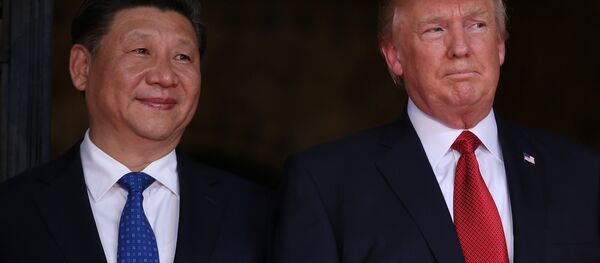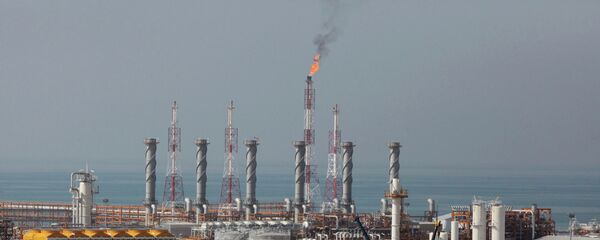Kristian Rouz — Amidst the recent financial turmoil in Argentina, Turkey, Hungary and Indonesia, investors are expecting either a sudden rebound towards a full recovery or a further deepening of the crisis. The latter scenario appears to be quite alarming, as some point out possible declines in oil-exporters' national currencies could thwart the recent rally in the global energy sector.
However, a crisis in the global commodity trade could also impair inflation expectations in advanced economies, which have been struggling to spur weak inflation towards their 2-percent targets over the past decade to little avail. This could squeeze consumer confidence and hurt manufacturing output across the developed world as well.
"The key driver for emerging markets will continue to be exogenous factors, in particular, the performance of the US dollar and US rates, which have been key headwinds for our asset class in recent weeks," Paul Greer of Fidelity International in London said.
READ MORE: China Better Economic Choice Than US for EU
Investors say the main reason behind such fluctuations has been capital flight from EM countries to Japan, the Eurozone, and the US, motivated by monetary policy considerations in the face of the heightened risks of global trade disruptions.
Experts say there are several EM economies that could be next in line, including India and the Philippines. These two countries are also exposed to the global dollar economy, particularly due to their high levels of dollar-denominated debt.
"If markets stabilize, you may see investors get a little more optimistic and try to jump in to pick up some values," Eric Stein of Eaton Vance Corp. in Boston, Massachusetts said. "If things keep selling off, investors may get even more skittish."
READ MORE: False Prices, Derivatives and 'Ticking Time Bombs'
EM countries have accumulated high levels of dollar debt since the global crisis of 2008-2009 when the near-zero borrowing costs in the US enabled significant capital outflows from the US to more lucrative opportunities overseas.
A one-time withdrawal of tens-of-billions of dollars from a single national economy would inevitably cause a currency plunge, or put a massive dent in the country's foreign reserves in case its central bank practices currency controls in one or another form.
Some emerging markets, despite being exposed to the dollar risks, are also backed by a robust domestic economy — and therefore are less likely to crumble.
"Investors should resist being shaken out of positions in countries with solid domestic economic conditions, strong balance sheets, limited indebtedness and management agility such as Colombia," Mohamed El-Erian of Allianz wrote. "If anything, a downturn in prices triggered by global events can provide attractive buying opportunities."
READ MORE: 'Digital Economy to Have Wide Variety of Fiat-Backed Stable Coins' — Circle CEO
Whilst the overall situation for EM countries remains quite wobbly, several central banks are bracing for possible pre-emptive action. The central banks in Israel, Kenya, and Guatemala are set to discuss changes to their respective monetary policies this week, as well as their likely response to a possible further spread of the EM turbulence.
Some experts point out the EM volatility could still subside unless new disruptive events take place in the near future. The overall situation is not yet at the point of a total EM meltdown but is highly reminiscent of the early signs of what started as regional currency instability in the Far East back in 1997.





